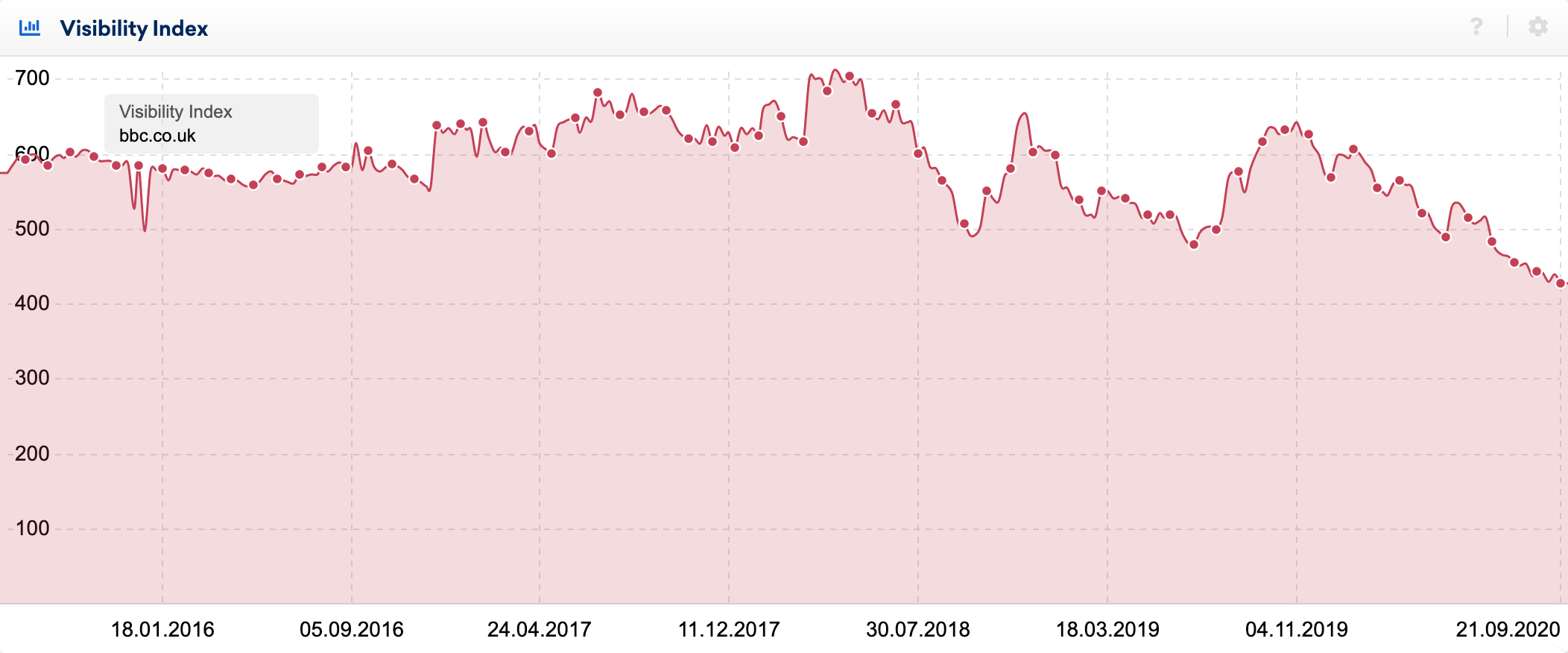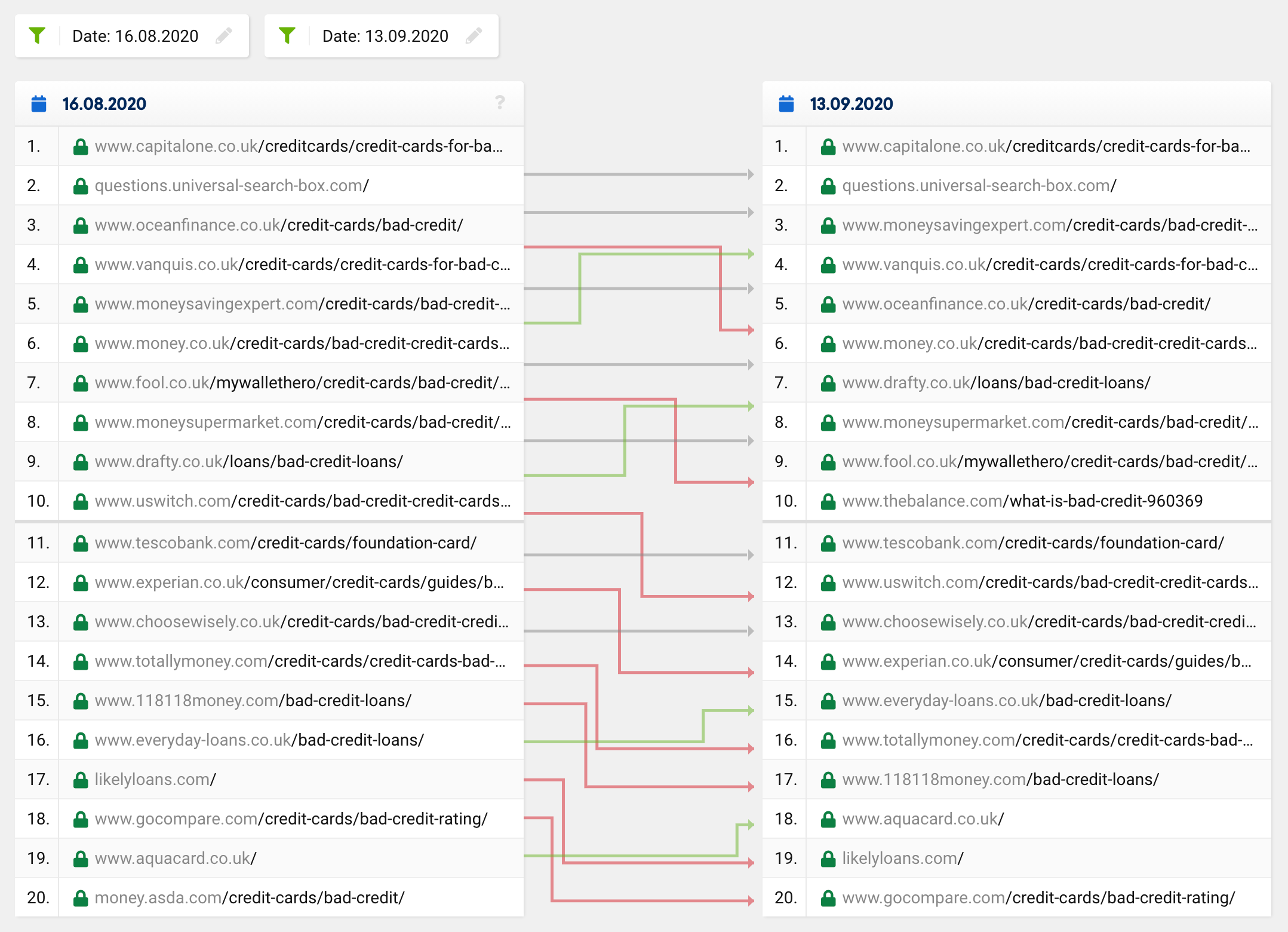Once you have established which metrics you need to track in order to properly monitor your SEO campaigns, you are going to need to get comfortable with identifying a ‘good’ and ‘bad’ result.
Even the most successful SEO campaigns will have their share of downs as well as ups. Given the length of time some SEO efforts can take to show benefit, it may be expected for results within the first three months to look uninspiring or even disappointing, so being able to read the data and understand what’s working and what’s not is key.
In this article we will focus on what success looks like when tracking an SEO campaign.
What does ‘good’ look like?
First, let’s confront one of the most widely misunderstood elements within SEO – what ‘good’ looks like. This feels like it should be intuitive, but an absolute consensus is quite crucial here.
For example; if organic traffic is up 10% week-on-week, you might feel pretty happy with that result, however, your boss may feel differently if they expected a 40% increase.
The perception of a good result can be impacted by many factors, these are some of the most likely;
- How long you are measuring for – a week, a month, a quarter or a year.
- When (what time period) you are comparing to – for example, against last month, last quarter or last year.
- Who/what you are comparing against? – Which competitor or even which market?
- How you attribute conversions – Are you attributing revenue to the last-touch? or are you looking at more nuanced attribution models?
There are few right/wrong answers to the above, and every business is different. However, what you need to do is establish a) a robust way to measure performance and b) agree on how this is reported on.
How do you Benchmark Current Performance?
For everyone to agree what ‘good’ looks like, you first need to understand what is achievable for SEO within the timeframe and budget. This is notoriously different to predict as there are many variables outside of your control – namely Google’s own updates.
A good appraisal of current performance and a benchmark of this will help everyone understand where the starting point is, and therefore what is possible. The following questions can help establish a strong benchmark:
Question 1) Over the last 6/12 months is your online visibility/traffic…
- Growing?
- Stagnant?
- Shrinking?
Understanding the current trajectory of growth helps focus the target. If your website traffic is growing 10% each year from search engines, setting a target of 10% for the next year is relatively modest. Whereas if your organic traffic has been striking 30% of the last year, a target of growing by 10% year on year is a far bigger task. You have to reverse the decline first!

For example, if you are observing a downward trend in visibility like this one, you will need to ensure this is factored into the new targets.
Question 2) Over the last 6/12 months is your market…
- Growing?
- Stagnant?
- Shrinking?
If you can establish the marketplace and its level of growth you can gain an understanding of whether you are asking SEO to work with or against market forces. Establishing the changes in Keyword search trends is one of the key methods to do this but industry reports and looking at company information (from sources such as DueDill) can also provide this information.
Question 3) Over the last 6/12 months has the competition…
- Increased?
- Stayed the same?
- Decreased?
Not only do you need to focus on what your activities are, what Google is changing and whether the customer’s habits are shifting – your competition is a massive factor too. SEO can broadly be typified as a battle for the top 3-5 spots on page one, more competitors means this will become harder. Using historic data from rank trackers can help you see how many competitors there were on Google last year (or the years previous) and can help you to understand what the level of growth within your industry itself is.

If you compare two search results pages over time you can observe the different websites ranking and therefore build a picture of how the competition changes.
Use your software and tracking to research and understand the above questions and then work to define what a ‘good’ result – based on this context – would be.
Leading Indicators in SEO
Whilst the long-term goal for SEO should be business growth, this can take time. If we just focus on the metrics which report on business growth, there is a significant chance that we may lose patience waiting for success to come.
There are many leading indicators in SEO which can help to see signs of progress because they reach the high-level metrics.
[table “88” not found /]Some of these indicators can positively or negatively lead another – but understanding the relationship between them is vital for tracking progress and predicting future results.
Whilst none of these are guarantees – there can be anomalies in the data and fortunes can change – however, these all need to be viewed together to understand your success.
Is there a difference between SEO and business goals?
Selecting the right metrics is key, but ensuring that they are well aligned with the needs of the business is even more important.
An SEO goal may be “increases visibility of keywords in google” but that goal is unlikely a business goal – which may be “to grow the business by £X million over the next two years”. The SEO goal in this instance can likely contribute to the business goal, but this is not a perfect match.
If greater visibility leads to more traffic, and traffic leads to contact forms being completed followed by sales being agreed, then SEO contributes to the business goal – but sight of each of these metrics along the journey needs to be considered.
For SEO campaigns looking to really embrace the needs of the business, they need to ensure that they have visibility of, or attempt to incorporate the business goals into the dashboards and reporting.
Understanding that keywords/pages generate traffic is fundamental, understanding which of those generate meaningful revenue gives you far more control to generate better results in the future.